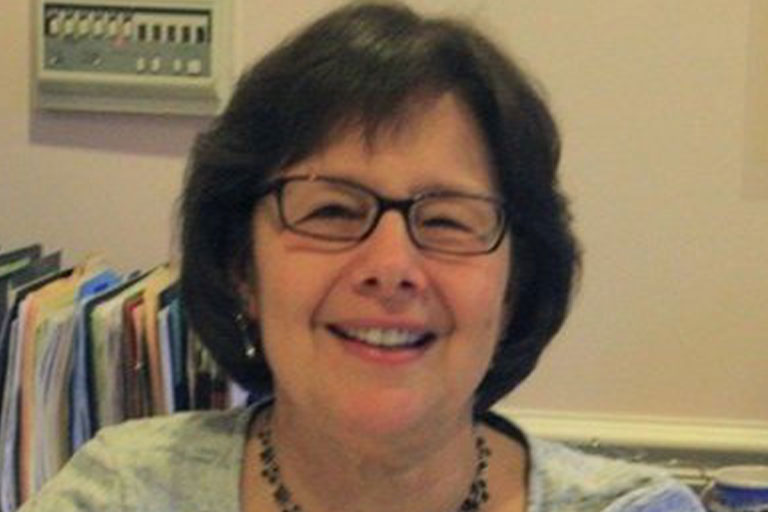The Helene G. Simon Hillel Center at Indiana University is dedicated to the Jewish community and family. It is affiliated with many community programs, such as Challah for Hungry Hoosiers and Indiana University Dance Marathon.
Rabbi Sue Laikin Silberberg is the executive director of Indiana University Hillel and the founder of Bloomington United, an organization dedicated to promoting diversity and ending hate in the Bloomington area. I sat with her to discuss common misconceptions people have about Jewish culture.
Can you tell us a little about the history and culture of the Jewish community at IU?
"Hillel was founded on this campus in 1938," Silberberg said. "Herman B Wells was a huge advocate for the Jewish community at the time. He thought it was important for Jewish students and faculty to have a place where they could go." Currently, there are somewhere around 4,000 Jewish students on campus.
"Judaism is more than a religion. It is a culture. It’s a people. We’re a community defined and shaped by Jewish values, ethics, and history."
What common misunderstandings or misnomers have you encountered related to Jewish culture?
"Jews come from all over the world," said Silberberg. "There’s a stereotype that all Jews are white, which isn’t true. So, for example, there are Ashkenazi Jews, who are of Eastern European descent, on our campus, and there are Jews of Sephardi descent who originally descended from Spain."
She also said, "There’s a stereotype that Jews don’t face any form of discrimination and antisemitism, which is completely not true. But, unfortunately, there’s a tremendous amount of antisemitism out there. Within the past two years, there have been more reported incidents on college campuses than ever."
Christianity is currently the most popular religion in America. What are some misconceptions about the differences between Judaism and Christianity?
"Many non-Jews know that Jews don’t accept Jesus as the Messiah," she said. "Most Jews don’t believe Christians are wrong (about Jesus). It’s just not part of our tradition. We believe that all people are neither good nor evil, and everything we do is about our choices.
"If I do something wrong, it’s not because I’m evil or a bad person; we don’t believe in original sin. We believe that we’re all responsible for our actions. So within our worldview, we wouldn’t need someone to redeem us for our sins because we believe it’s all about the choices that we make in life."
She went on to talk about the Jewish concept of tikkun olam, which means "to repair the world." "We should constantly try to make the world better, and that’s why we’re here. We’re very focused on this life and making the world the best it can be now. We don’t know what happens to us after we die. We know there will be people who came into the world after us, and we need to leave the world better than we found it for those who come after us."
Another Jewish tradition is tzedakah, which means "making the world more fair and more just." "It means giving resources and money to those who don’t have," said Silberberg. "These are fundamental concepts of Judaism."
How can we work to erase antisemitism from the IU community?
"The biggest thing is education,” said Silberberg. "I think a lot of times people don’t know. For people to educate themselves about what Judaism is, come to the Jewish Culture Center and Hillel. Come and learn about Judaism. No one will try to convert you. We’re not allowed to do that.”
"I want to help teach people what Judaism is. Once people know who we are and learn about Jewish culture, life, and community, people will realize that we have a lot in common. And our differences are something that we can celebrate. We can learn from other cultures, and other cultures can learn from us.”
The Jewish Culture Center is located at 730 E. 3rd Street in Bloomington, Indiana.


